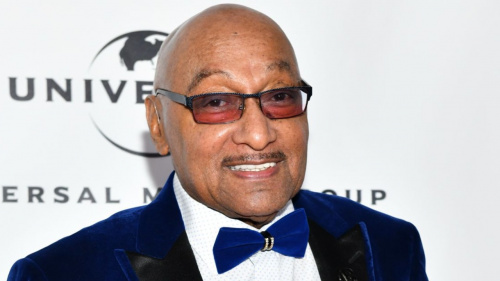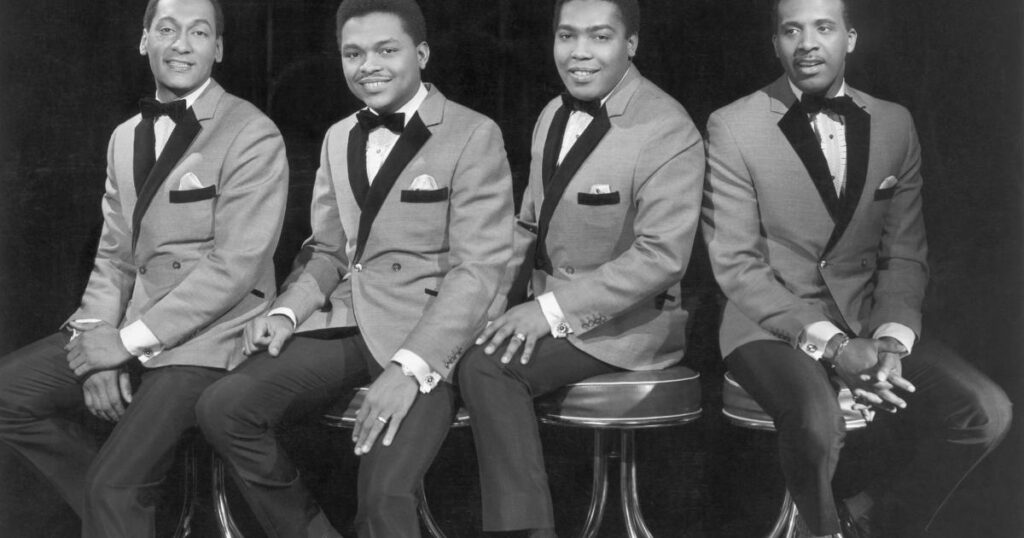
Duke Fakir was born Abdul Kareem Fakir on December 26, 1935 and was a seminal figure in the world of music, known for being the last surviving member of the original lineup of The Four Tops, a legendary Motown group. Born in Detroit, Michigan, Fakir’s life and career were deeply intertwined with the rise of Motown Records and the soul music movement of the 1960s and beyond.
Fakir’s parents were of Ethiopian and Yemeni descent, adding a rich cultural heritage to his American upbringing. He grew up in a neighborhood brimming with musical talent and was deeply influenced by the gospel and jazz sounds that permeated the Detroit airwaves. Fakir’s introduction to music came at an early age, singing in his church choir and participating in school music programs. This early exposure laid the groundwork for his future in the music industry.
In 1954, Duke Fakir, along with friends Levi Stubbs, Renaldo “Obie” Benson, and Lawrence Payton, formed a group initially known as The Four Aims. The quartet soon changed their name to The Four Tops to avoid confusion with another group. Their harmonious blend and charismatic performances quickly garnered local attention, and they spent a decade performing in clubs and theaters, honing their craft and building a loyal following.

The Four Tops’ big break came in 1963 when they signed with Berry Gordy’s Motown Records. This marked the beginning of a new era for the group, as they became a central part of the Motown sound that revolutionized popular music. Under the guidance of the prolific songwriting and production team Holland-Dozier-Holland, The Four Tops released a series of hits that cemented their place in music history.
Their first major hit, “Baby I Need Your Loving,” released in 1964, was a commercial success and showcased their rich vocal harmonies and emotive delivery. This was followed by a string of chart-topping singles, including “I Can’t Help Myself (Sugar Pie, Honey Bunch),” “It’s the Same Old Song,” and “Reach Out I’ll Be There.” Duke Fakir’s tenor voice, blending seamlessly with Stubbs’ baritone lead, was a defining element of their sound.
Duke Fakir and his bandmates were known for their energetic live performances, characterized by their impeccable vocal synchronization and polished choreography. Their ability to convey deep emotion through their music resonated with audiences worldwide, and their songs often addressed themes of love, heartbreak, and resilience. The Four Tops became symbols of the Motown era, representing the fusion of pop, soul, and R&B that defined the 1960s and 1970s.
As the music industry evolved, The Four Tops adapted to changing trends while maintaining their distinctive sound. They continued to produce hits throughout the 1970s and 1980s, including songs like “Ain’t No Woman (Like the One I’ve Got)” and “When She Was My Girl.” Fakir’s versatility as a performer and his unwavering commitment to the group’s artistic vision were crucial to their enduring success.
Beyond their musical achievements, The Four Tops were also noted for their camaraderie and mutual respect. The original members remained together for over four decades, a rare feat in the music industry. Fakir often spoke about the bond they shared, describing it as a brotherhood built on trust, friendship, and a shared passion for music.
Duke Fakir’s contributions to music were recognized with numerous accolades, including induction into the Rock and Roll Hall of Fame in 1990 and the Grammy Lifetime Achievement Award in 2009. These honors reflected not only the impact of The Four Tops’ music but also Fakir’s role in shaping the sound of a generation.
In his later years, Duke Fakir remained active in the music scene, performing with newer lineups of The Four Tops and participating in various charitable endeavors. He was a vocal advocate for music education and often spoke about the importance of preserving the legacy of Motown for future generations. Fakir’s memoir, “I’ll Be There: My Life with The Four Tops,” published in 2019, provided an intimate look into his life and career, offering insights into the highs and lows of his journey.
Fakir’s story is one of perseverance, passion, and the transformative power of music, reminding us of the profound impact that a dedicated artist can have on the world.
Duke Fakir died of heart failure at his Detroit home on July 22, 2024, at the age of 88.
Check out Duke Fakir on Amazon.
Check out The Four Tops on Amazon.
If you found this interesting please share it with friends and family, and have a look at more of our articles on Musicians who died in 2024.
.


The Four Tops were Fab!